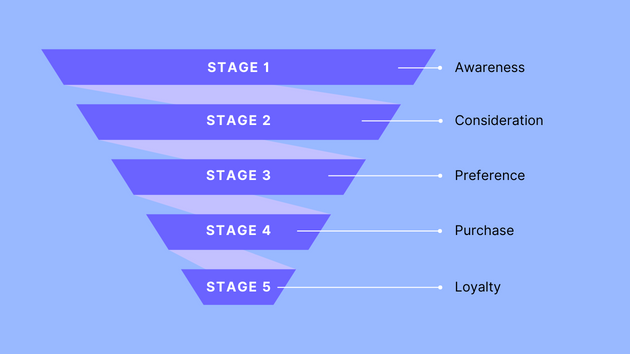How Technologies are Driving Digital Financial Transformation:

Financial transformation services involve the utilization of digital technologies and strategies to bring about a fundamental shift in how financial institutions function and engage with their customers. This entails employing technologies such as artificial intelligence, blockchain, cloud computing, and data analytics to simplify processes, improve customer experiences, and provide innovative products and services. Through digital transformation, tasks can be automated, transactions can be digitized, data analysis can be enhanced, and customer engagement can be personalized. Ultimately, this drives efficiency, adaptability, and competitiveness within the financial services sector.
The Key Components of Digital Financial Transformation:
The financial transformation surrounded several key elements that drove its success. Addressing these elements enables organizations to achieve a streamlined, cost-effective finance transformation, driving efficiency and yielding optimal results.
- Finance Strategy: A modern finance strategy leverages digital technologies like cloud software, automation, and data analytics to enhance planning, forecasting, and adaptability to evolving business demands.
- Finance Operations: This involves executing the finance mission by providing financial advice, guidance, and supporting procurement processes, including pay support and disbursement.
- Finance Processes: Finance processes consist of sequential tasks that transform data into a finished state. Examples include collecting employee expenses, reviewing and approving them by managers and finance teams, and ensuring timely payment to employees.
- Organizational Change and Talent: Successful transformation requires investment, resources, and planning to expand or develop capabilities. Stronger capabilities, utilizing real-time data and analytical tools, are needed for effective decision-making.
The Future of Technology in Digital Financial Transformation:

Finance leaders recognize the need to accelerate the implementation of digital finance technology by 2025 to effectively support the business. Not addressing these aspects could lead to a decline in credibility with decision-makers, hinder business foresight, and decrease operational efficiency. Currently, only 37% of finance leaders have a clearly defined digital technology investment strategy for the next two to three years.
The Internet of Things (IoT) and blockchain technologies are seen as more revenue-generating compared to advanced data and analytics.
Finance leaders are recognizing the value that additional automation tools, including robotic process automation (RPA), machine learning (ML), workflow automation, and intelligent document processing (IDP), can bring.
The category of advanced data and analytics, including AI, is where significant value is delivered, and finance executives plan to increase investments in technologies like self-service data analytics, automated ML and ML, cloud analytics, big data analytics, and predictive analytics.
Guide finance’s digital technology approach, investment choices, and implementation strategies, focusing on three primary elements:
- Finance and technology strategy
- Finance technology selection:
- Finance technology optimization:
Finance technology strategy involves creating a roadmap to track progress and understand the long-term costs of technology investments. Finance technology selection requires staying informed about available solutions and vendor capabilities to choose the right partner. Finance technology optimization focuses on maximizing value from existing investments and exploring automation tools beyond RPA for increased productivity and scalability.
In short, the finance function is heading towards autonomy, necessitating its transformation into a digital operation that can understand and adapt to the requirements of a digital business landscape. This shift recognizes that human management or physical proximity may not be necessary for various activities in the future.
Why is financial transformation so important?
Financial transformation is important due to its numerous benefits. It enhances the efficiency and effectiveness of financial operations, leading to cost savings and improved profitability. By gaining a better understanding of financial performance, organizations can make informed decisions and develop effective strategies. Furthermore, financial transformation enables organizations to adapt to evolving business environments and regulatory demands, positioning them for future growth and success.
Here are 10 key drivers that define why financial transformation is important:
- Pursuit of enhanced efficiency in processes
- Enhanced controls implementation
- Elevated reporting and stakeholder visibility
- Addressing customer demands
- The urgency to digitize financial processes
- Heightened business complexity
- Shortening cash cycles
- Global expansion considerations
- Navigating through uncertainty
- The necessity for supplier integration
Benefits of digital financial transformation:

Finance transformation offers several benefits that can positively impact businesses every day.
Firstly, it can lower costs and identify cost-saving opportunities through automation and streamlined processes. Additionally, it increases efficiency, reduces errors, and provides easier-to-use data and reporting. The ability to conduct business remotely can lead to lower wages and improved payroll planning.
Finance transformation also drives operational efficiency and speed by aligning processes with appropriate technology platforms. Implementing a centralized finance data hub enhances collaboration and enables remote operations, resulting in increased productivity.
Lastly, finance transformation harnesses emerging technologies to effectively analyze and gain valuable insights from vast amounts of data.
How technologies are driving digital financial transformation:
Finance transformation can effectively address data management challenges by leveraging emerging technologies.
- Robotic Process Automation (RPA) automates repetitive tasks, such as payroll and invoice processing, enhancing efficiency.
- Artificial Intelligence (AI) augments human expertise, improving productivity and problem-solving capabilities.
- Blockchain enables secure and transparent transaction recording, reducing costs and addressing issues in accounts payable workflows.
- Cloud technology provides a scalable and flexible infrastructure, facilitating faster implementation and cost-effectiveness.
- Advanced analytics extract valuable insights from data, enabling better decision-making and enhancing the customer experience in invoice-to-cash processes.
By adopting these technologies, finance organizations can overcome data management challenges, streamline operations, and drive innovation in their processes.
How Financial Transformation Looks Practically:
Finance transformation offers a valuable solution for finance teams seeking to streamline and optimize their systems through a fresh approach. However, it is important to note that some vendors may focus solely on selling technology updates without adequately providing operations training to the team. This can result in businesses investing heavily in technology without receiving a comprehensive roadmap for system transformation or enabling strategic change.
Finance transformation can bring about several practical changes for finance teams. Here are some examples:
- Standardized finance processes and systems to minimize errors and enhance efficiency.
- Automation of month-end reporting replaces lengthy board pack creation within a week.
- Expanded automation in business functions to identify cost-saving opportunities within the department.
- Enhanced collaboration is facilitated by a centralized finance data hub.
- Potential for remote team operations, potentially reducing wages and enabling more strategic payroll planning.
These examples illustrate the practical changes that finance teams can expect from finance transformation, ultimately driving efficiency, accuracy, and strategic decision-making within the finance function.
What is the KPMG financial transformation?

KPMG’s Finance Transformation practice provides comprehensive support to CFOs, addressing the key issues that global finance leaders prioritize. KPMG helps enhance the performance of the finance function by addressing the following questions:
- Evolution of the Finance Operating Model: They help organizations identify how their finance operating model needs to evolve to meet the future needs of the business. This includes determining the optimal structure, processes, and technologies that align with strategic objectives.
- Increasing Focus on Value Creation: They work with finance leaders to identify opportunities for value creation within the organization. This involves assessing existing processes and systems to uncover areas for improvement and implementing strategies to drive efficiency and effectiveness.
- Future Skills and Capabilities: KPMG Financial Transformation helps organizations identify the skills and capabilities required for the finance function to thrive in the future. This includes understanding emerging trends, technologies, and best practices and developing strategies to attract, develop, and retain top talent.
See More:
- Best Financial Digital Transformation Services: Trend | Future
- What is the Digital Transformation in Local Government: Benefits| Challenges
- Digital Transformation in Business: Trend| Future| Benefits
- Digital Transformation in Government and Public Sector: Challenges| Benefits| Trends
- 10 Top Digital Transformation Tools List
- Human-Centered Digital Transformation: Tech Secrets Gen5
- Digital Transformation Speakers
- How to Build an Agile Transformation Roadmap: 3 Effective Way




